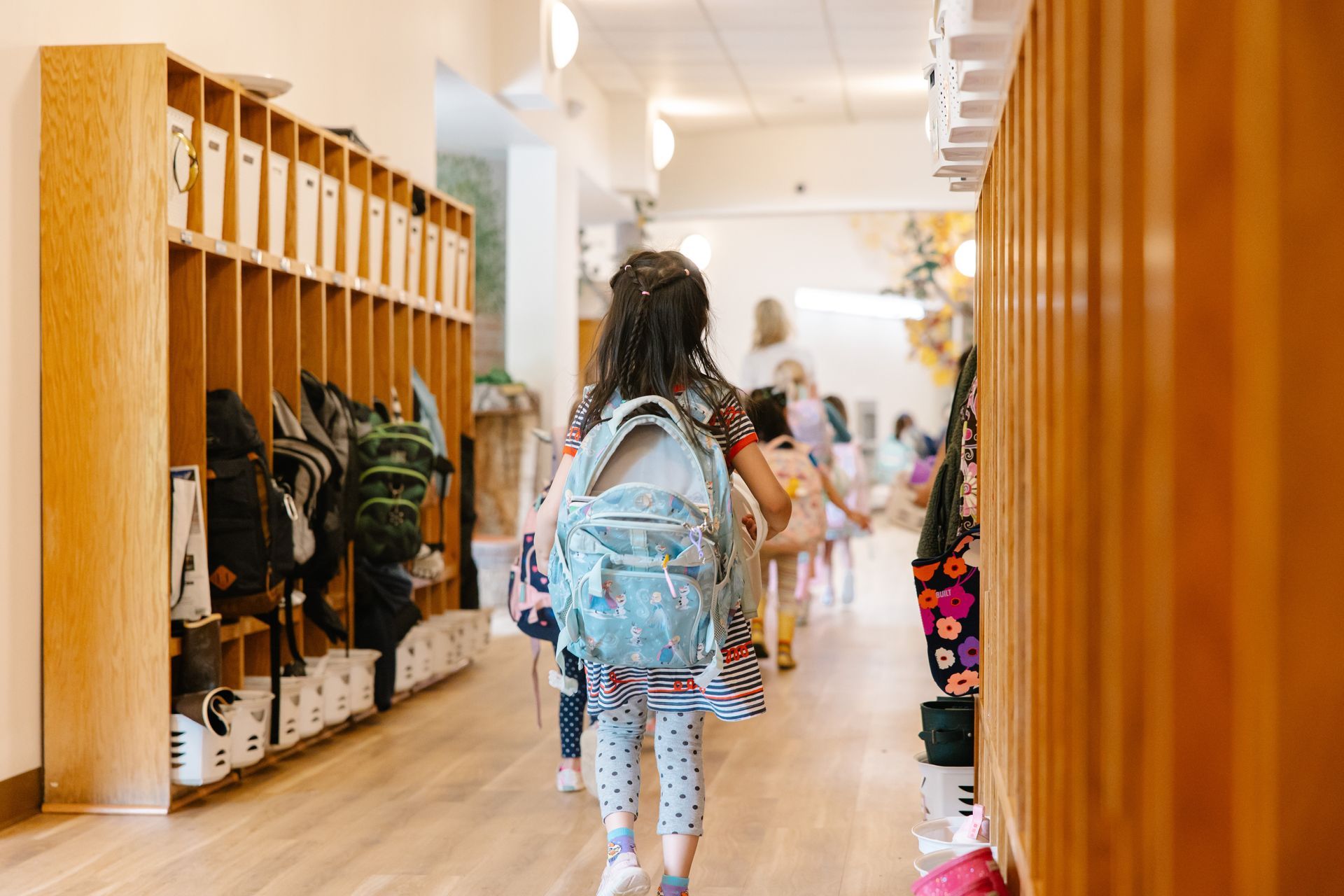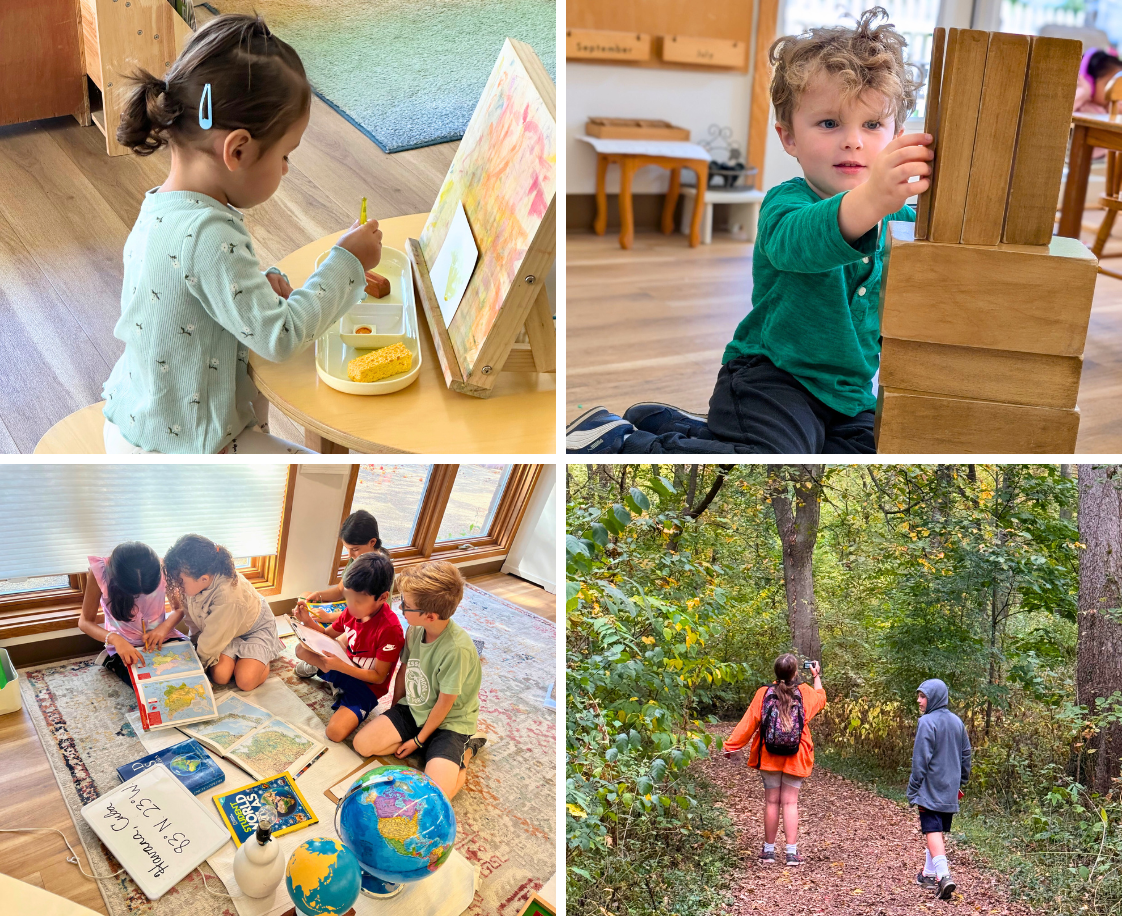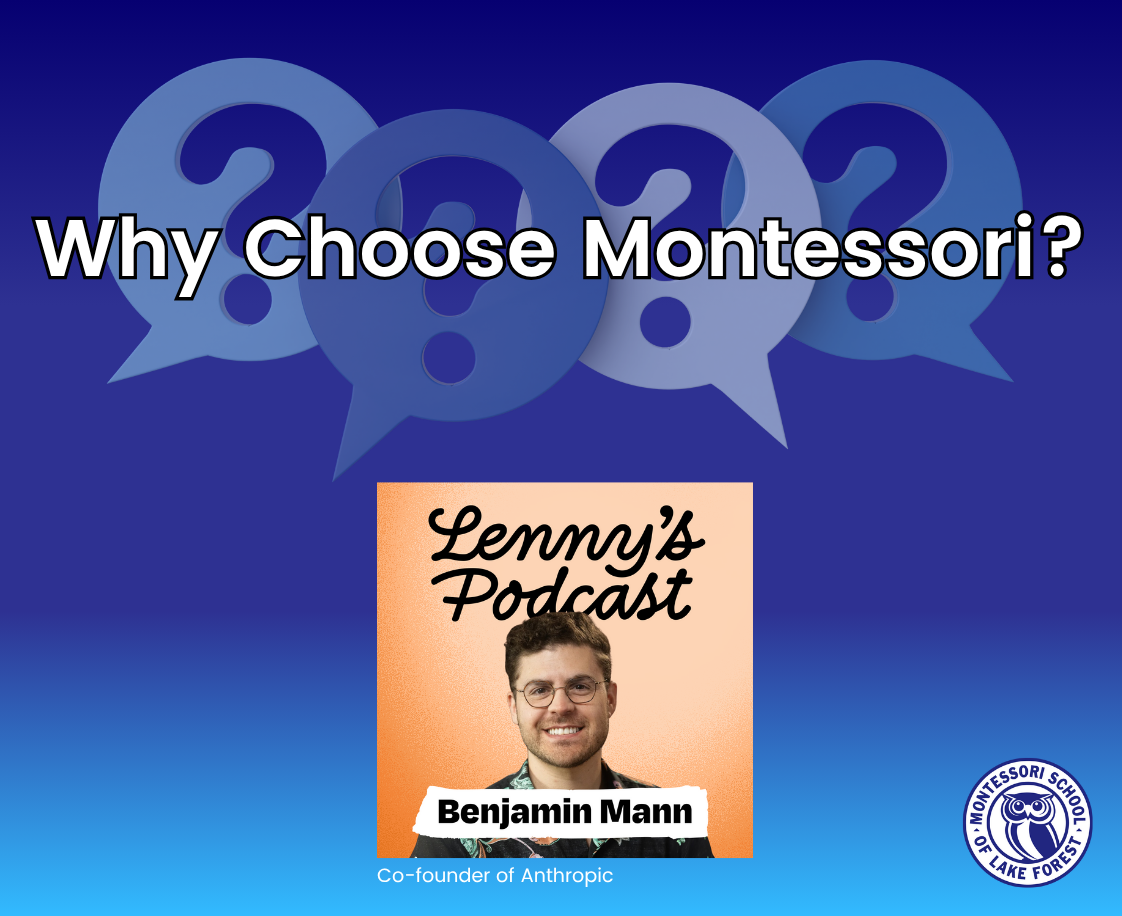It can be hard for children to talk about their experiences at school. If we shift our approach, we can often get more insight into our children’s day.

When we pick up our children from school, it can be so tempting to ask, “How was your day?” Often the responses are pretty lackluster.
As adults, we can likely relate. If a partner or friend asks about our day, our responses may be along the lines of fine, good, tiring, okay. Sometimes we just don’t feel like rehashing the day!
For children, there can also be an element of not always having the language to explain what they did or experienced. In Montessori environments, this can be even more challenging. How can a young child describe the sensorial experience of carrying each block of the pink tower to a rug and creating a geometric tower of cubes based on the decimal system? Or convey their emerging conversation with a friend during community lunch? Or relate their delight in discovering that ten 10s create a hundred square?
As children get a little older, they are also starting to grapple with figuring out their relationships with peers, which involves so many social nuances. Younger elementary-aged children are still seeing these relationships in black and white. So their descriptions of the day may be pretty two-dimensional: someone was mean or nice, the day was good or bad (usually based on an interaction with a friend), etc.
It can be hard for children to talk about their experiences at school. However, if we shift our approach, we can often get more insight into our children’s experiences.
Ideally, we focus on connection first. When we see our children at the end of the school day, we can greet them in a way that conveys how happy we are to see them. They may be tired, need to fall apart a little, have a snack, or just have a little time for rejuvenation. Allow a little loving space. Each child has a different way they feel fueled, loved, seen, and held. That first moment isn’t an ideal time to ask about the day because our children are transitioning into being back in our care. Plus, there is a lot going on during that transition!
Later, when our children have settled into being with us or at home, and hopefully have had a snack or a little time to decompress, we have a chance to connect about the day. However, a word of caution: questions like, “How was your day?” or “What did you do today?” are so open-ended, they can also feel overwhelming to children.
Instead, when we focus on starting a conversation rather than digging for information, our children are more likely to open up. They also need to feel that we are completely present for their responses, which means putting down our phones, not focusing on getting everyone into or out of the car, or not being involved in something like preparing dinner. It helps when we can show with our body language that we are really listening.
In those times when you are ready to explore a conversation, we recommend trying some other kinds of questions. Here are 26 of our favorites. The first five work best for younger children.
1. What made you feel happy today?
2. Who did you play with today? What did you do together?
3. Who did you sit with at snack/lunch today?
4. What made you feel sad today?
5. What was your favorite activity today?
6. What is something you did today that you’d love to do every day?
7. How did someone fill your bucket today? Whose bucket did you fill?
8. What made your teacher smile? Did anything make your teacher frown?
9. What were you grateful for today?
10. What is your class or teacher’s most important rule?
11. Who do you want to make friends with but haven’t yet?
12. What did you learn about a friend today?
13. What did you do today that was helpful?
14. When did you feel most proud of yourself today?
15. What rule was the hardest to follow today?
16. Who is the friendliest person in your class? What do they do to be friendly?
17. What did you do today that was creative?
18. What was the high point of your day? What was the low point?
19. What is something that challenged you?
20. What is something that you were super good at today?
21. What compliments did you get (or give) today?
22. How were you brave today?
23. If you could change one thing about your day, what would it be?
24. How was your day different than yesterday?
25. What superpower would have come in handy today?
26. What are you looking forward to tomorrow?
After a snack, over dinner, on an afternoon walk, or before bed, try starting conversations with these kinds of questions. Notice that most of them can’t be answered with one word.
In addition, we can also provide our own responses, which provides a model for our children and gives them some scaffolding as they are thinking about how to answer. For example, “At lunch today I sat with someone who just started working with me. We talked a lot about going hiking and I shared some of my favorite hikes.” Or “When I was about your age, we loved playing capture the flag. One of my favorite memories of this game was when…” Sharing parts of our day or some of our own school memories not only shows that we are interested in conversation, but it also gives our children a guide for how to begin.
Let us know how it goes to first connect and later start conversations with open-ended questions. If you have any conversation starters that you and your children especially love, please share them! You can also download this printable of our favorite questions to keep handy for those opportune moments.




